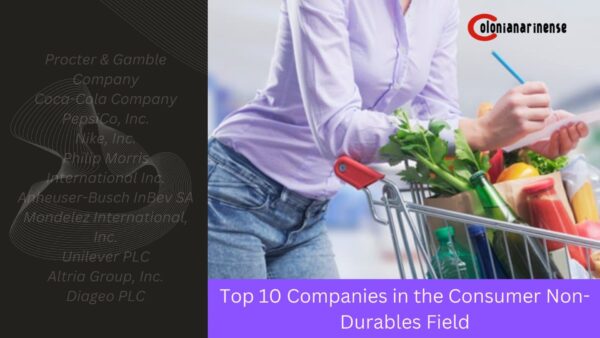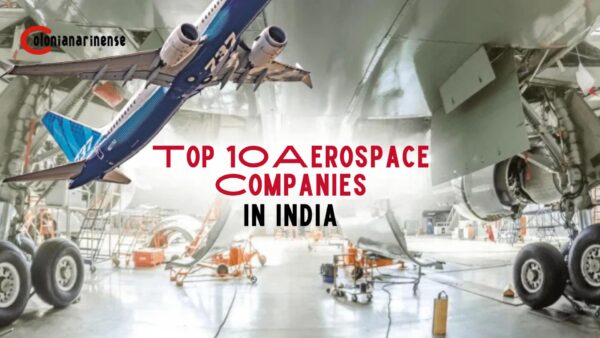Top 10 Leading Companies in the Consumer Non-Durables Field
In the realm of consumer non-durables, we’re talking about companies that produce goods meant for immediate or near-immediate use, which means consumers need to repurchase them regularly. If you’re curious about which companies lead the consumer non-durables sector, you’re in the right place. We’ve conducted extensive research to compile a list of the top 10 companies in this field for 2024. So, let’s dive straight into the details.
1. Procter & Gamble Company
- Market Cap: $345.38 billion
Founded in 1837 by William Procter and James Gamble, Procter & Gamble (P&G) started with soap and candles. They made a significant impact during the Civil War by supplying the Union Army. Over the years, P&G has introduced iconic products like Ivory soap and Crisco. Today, P&G offers a wide range of products for health, beauty, and household care, aiming to improve daily life. Additionally, P&G engages in impactful campaigns, such as “Always #LikeAGirl” and “Tide Loads of Hope,” providing support during natural disasters.
2. Coca-Cola Company
- Market Cap: $254.78 billion
Coca-Cola was created in 1886 by Dr. John Pemberton in Atlanta. Originally served as a tonic, it became famous thanks to its unique flavor and branding. The company quickly grew, expanding from local sales to a global presence with a diverse portfolio of over 2,800 beverages. Today, Coca-Cola is a leading brand in the beverage industry, known for more than just its flagship soda.
3. PepsiCo, Inc.
- Market Cap: $233.51 billion
PepsiCo started in 1898 with Caleb Bradham’s creation of Pepsi. By 1965, it merged with Frito-Lay, forming a powerhouse in the snack and beverage industry. With a wide array of popular brands like Lay’s, Doritos, Gatorade, and Quaker Oats, PepsiCo caters to various consumer tastes. As a leader in consumer non-durables, PepsiCo focuses on products that are consumed quickly, ensuring repeated purchases.
4. Nike, Inc.
- Market Cap: $165.23 billion
Nike, originally founded as Blue Ribbon Sports in 1964, rebranded in 1971, drawing inspiration from the Greek goddess of victory. Nike has become a global leader in athletic apparel and footwear, offering a vast range of products designed for sports and everyday wear. However, like many companies in this sector, Nike is facing challenges, including a $2 billion cost-saving plan due to declining sales projections, particularly in China and Europe.
5. Philip Morris International Inc.
- Market Cap: $146.05 billion
Philip Morris International (PMI) is a major player in the tobacco industry, known for its cigarettes and alternative products like heat-not-burn devices and e-cigarettes. As smoking declines due to health concerns, PMI is shifting towards reduced-risk products. Despite the shift, PMI continues to deliver consistent dividends, maintaining investor interest.
6. Anheuser-Busch InBev SA
- Market Cap: $102.29 billion
AB InBev, a merger of historic breweries, became a global leader in the beer industry. With roots going back to the 14th century, the company’s modern form was established in 2004 and further solidified by merging with Anheuser-Busch in 2008. AB InBev’s portfolio includes over 630 beer brands, such as Budweiser, Corona, and Stella Artois, catering to a global audience. As a non-durables company, their products are designed for immediate consumption, ensuring steady demand.
7. Mondelez International, Inc.
- Market Cap: $98.57 billion
Mondelez International, a giant in the snack industry, traces its origins back to the 1920s with the National Dairy Products Corporation. Over the years, it has evolved, acquiring iconic brands and transforming into a major player in the snack market. In 2012, Mondelez split from Kraft Foods, focusing solely on snacks and beverages, with brands like Oreo, Cadbury, and Trident under its umbrella.
8. Unilever PLC
- Market Cap: $95.04 billion
Unilever, a British-Dutch multinational, was formed in 1929 from the merger of margarine and soap companies. With roots dating back to the 1800s, Unilever has grown into a consumer goods titan, offering products in personal care, food, and home care categories. With brands like Axe, Dove, and Ben & Jerry’s, Unilever is a leader in consumer non-durables, providing products that are used and replaced frequently.
9. Altria Group, Inc.
- Market Cap: $71.35 billion
Altria Group dominates the North American tobacco market, with Marlboro as its flagship brand. Despite the decline in cigarette consumption, Altria remains a strong player by diversifying into alternatives like vaping. The company continues to deliver reliable dividends, appealing to income-focused investors even as it navigates a changing landscape.
10. Diageo PLC
- Market Cap: $63.23 billion
Diageo, a leading spirits company, was established in 1997 from the merger of Guinness and Grand Metropolitan. Based in London, Diageo’s portfolio includes popular brands such as Guinness, Smirnoff, Baileys, and Johnnie Walker. As a key player in the alcoholic beverages market, Diageo caters to consumers looking for immediate consumption, making it a staple in the non-durables sector.
Conclusion
There you have it—the top 10 companies dominating the consumer non-durables sector in 2024. While this list provides a solid starting point for those considering investments in this field, it’s essential to conduct thorough research and analysis before making any financial decisions. Understanding the nuances of each company and how they fit into the broader market landscape can help you make informed investment choices.



